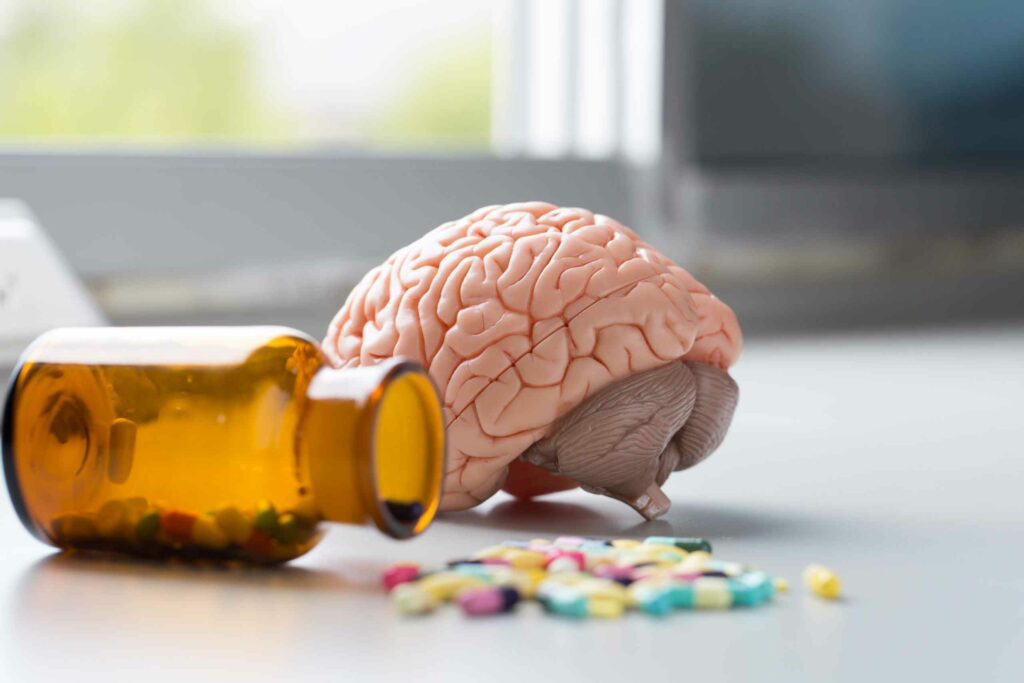The battle against addiction is an arduous journey, often filled with pain, setbacks, and heartache. As individuals strive to overcome their dependencies, it is essential to have compassionate and skilled professionals to guide them on the path to recovery. Chemical dependency therapists play a vital role in helping individuals regain control over their lives and establish a healthier future. This article will explore the multifaceted ways in which these dedicated professionals support their clients and the unique techniques they employ to foster lasting change.
Contents
What Is Chemical Dependence In Psychology?
 Chemical dependence is also known as substance dependence or addiction. It is a complex psychological condition characterized by compulsive and uncontrollable use of a substance, despite its harmful consequences. In psychology, chemical dependence is considered a substance use disorder, which disrupts an individual’s normal functioning. And negatively impacts various aspects of their life, including physical health, mental well-being, relationships, and social or occupational responsibilities.
Chemical dependence is also known as substance dependence or addiction. It is a complex psychological condition characterized by compulsive and uncontrollable use of a substance, despite its harmful consequences. In psychology, chemical dependence is considered a substance use disorder, which disrupts an individual’s normal functioning. And negatively impacts various aspects of their life, including physical health, mental well-being, relationships, and social or occupational responsibilities.
Several factors contribute to the development of chemical dependence, including genetic predisposition, environmental influences, and psychological factors. Such as stress, trauma, or mental health disorders. Addiction involves changes in the brain’s reward system, where the repeated use of a substance leads to alterations in the brain’s structure and function.
These changes result in increased cravings for the substance, and tolerance (requiring higher doses to achieve the same effect). And withdrawal symptoms when the substance use is reduced or discontinued.
Who Is A Chemical Dependency Therapist?
A chemical dependency therapist, also known as a substance abuse counselor or addiction counselor, is a specialized mental health professional trained to help individuals struggling with substance abuse and addiction. These therapists work with clients to overcome their chemical dependencies, address underlying psychological issues, and develop healthier coping mechanisms. This helps in achieving long-term sobriety and overall well-being.
Chemical dependency therapists possess a strong understanding of the complex nature of addiction, including its biological, psychological, and social components. They are skilled in various therapeutic approaches which they use to guide clients through the recovery process.
In their role, chemical dependency therapists collaborate with other healthcare professionals, such as physicians, psychiatrists, and social workers, to provide comprehensive care for individuals struggling with addiction. This multidisciplinary approach ensures that clients receive well-rounded support that addresses everything related to the condition.
Role of Chemical Dependency Therapists in Addiction Recovery
 Chemical dependency therapists are specialized mental health professionals who work with individuals struggling with substance abuse and addiction. Their primary goal is to assist clients in overcoming their dependencies and building a life of sobriety and overall well-being. Here are some of the key responsibilities and roles of chemical dependency therapists in addiction recovery:
Chemical dependency therapists are specialized mental health professionals who work with individuals struggling with substance abuse and addiction. Their primary goal is to assist clients in overcoming their dependencies and building a life of sobriety and overall well-being. Here are some of the key responsibilities and roles of chemical dependency therapists in addiction recovery:
Assessment and Diagnosis
The first step in the therapeutic process is conducting a thorough assessment of the client’s substance use, mental health, and social history. This information helps the therapist to diagnose the severity and nature of the addiction, identify any co-occurring disorders, and develop an appropriate treatment plan.
Individualized Treatment Planning
Based on the assessment, chemical dependency therapists design customized treatment plans tailored to the unique needs and goals of each client. These plans may include a combination of individual and group therapy, pharmacotherapy, and other evidence-based interventions.
Family Involvement
Family members can play a significant role in the recovery process. Chemical dependency therapists may involve them in family therapy sessions, psychoeducation, or support groups. As this will help them understand addiction, improve communication, and foster a supportive environment for their loved ones.
Relapse Prevention
An essential aspect of addiction recovery is preventing relapse. Chemical dependency therapists teach clients essential skills and coping strategies to identify and manage cravings and triggers. It will help them maintain long-term sobriety.
Continuing Care and Follow-up
Recovery from addiction is an ongoing process. Chemical dependency therapists provide continuing care and follow-up services to ensure that clients maintain their progress. And receive support when needed.
As you can see, chemical dependency therapists are invaluable allies in the fight against addiction. They offer a comprehensive range of services, from assessment and diagnosis to therapy and continuing care, to help individuals overcome their dependencies and lead healthier, more fulfilling lives.
What Techniques Do They Use?
Chemical dependency therapists use a variety of evidence-based techniques and approaches to help clients overcome substance abuse and addiction. Some of the most commonly used techniques include:
CBT is a widely-used approach that focuses on identifying and modifying negative thought patterns and behaviors that contribute to addiction. Chemical dependency therapists use CBT to help clients recognize and challenge their dysfunctional thoughts and beliefs and develop healthier coping strategies.
MI is a client-centered counseling approach designed to enhance an individual’s motivation for change. Chemical dependency therapists use MI to help clients explore and resolve ambivalence, build self-confidence, and develop an action plan for achieving their recovery goals.
- Dialectical Behavior Therapy (DBT)
DBT is an evidence-based therapy that combines CBT with mindfulness and emotion regulation techniques. It is particularly useful for clients with co-occurring mental health disorders. Such as borderline personality disorder or depression. Chemical dependency therapists use DBT to help clients develop skills for managing distress, improving interpersonal relationships, and increasing emotional stability.
- 12-Step Facilitation
Many chemical dependency therapists incorporate the principles of 12-step programs, such as Alcoholics Anonymous (AA) or Narcotics Anonymous (NA), into their treatment plans. These programs focus on fostering a sense of community and encouraging personal responsibility. And, eventually, promoting spiritual growth as a means of achieving lasting recovery.
- Contingency Management
Contingency management is a behavioral therapy that uses positive reinforcement to encourage abstinence and other healthy behaviors. Chemical dependency therapists may use incentives, such as vouchers or rewards, to motivate clients to stay drug-free and engage in treatment.
These techniques, among others, are tailored to meet the individual needs of each client. This will ensure that they receive the most effective care and support throughout their recovery journey.
Benefits Of Choosing a Chemical Dependency Therapist
 Choosing a chemical dependency therapist can be a critical step in the journey toward recovery from addiction. Here are some key benefits of choosing them:
Choosing a chemical dependency therapist can be a critical step in the journey toward recovery from addiction. Here are some key benefits of choosing them:
- Expertise: Chemical dependency therapists have specialized education, training, and experience in addressing substance abuse and addiction. They possess a deep understanding of the complex nature of addiction and are skilled in evidence-based therapeutic approaches.
- Personalized Care: Chemical dependency therapists create individualized treatment plans tailored to the unique needs and goals of each client. By taking into consideration factors such as the severity of the addiction, co-occurring mental health disorders, and personal history, they can provide targeted and effective interventions to address the root causes of addiction.
- Emotional Support: Addiction recovery can be an emotionally challenging process. A chemical dependency therapist offers a safe, non-judgmental space for clients to express their feelings, fears, and frustrations.
- Coping Skills Development: Chemical dependency therapists teach clients essential skills and strategies for managing cravings, identifying triggers, and dealing with stress or other challenging situations. These skills are vital for preventing relapse and maintaining long-term sobriety.
- Relapse Prevention: An integral part of the recovery process is learning how to prevent relapse. These therapists work with clients to develop a comprehensive relapse prevention plan, equipping them with the tools and strategies needed to maintain sobriety.
- Ongoing Support: Recovery from addiction is a lifelong process. The therapist often provides continuing care and follow-up services to ensure that clients receive ongoing support and guidance. As they progress through their recovery journey.
Overall, selecting a chemical dependency therapist is a crucial decision that can greatly impact the recovery journey. These dedicated professionals offer not only expertise and personalized care but also compassion, support, and resources.
How To Find Chemical Dependency Therapists Near Me?
Finding the right chemical dependency therapist is a crucial step in your journey toward recovery. To help you locate a qualified professional near you, consider the following strategies:
- Search online directories: Websites such as MantraCare or SAMHSA’s Treatment Locator provide databases of mental health professionals in your area.
- Consult your primary care physician: Your doctor can often provide referrals or recommendations for reputable chemical dependency therapists nearby.
- Reach out to local support groups: Groups like Alcoholics Anonymous (AA) or Narcotics Anonymous (NA) often have connections to chemical dependency therapists and can provide recommendations.
- Ask friends or family: Personal recommendations from individuals who have experienced addiction treatment can help you find a trusted chemical dependency therapist.
- Check with your insurance provider: Your insurance company may have a list of in-network chemical dependency therapists in your area, which can also help you determine coverage for addiction treatment services.
Taking the time to research and connect with the right chemical dependency therapist can make a significant difference in your recovery journey. By utilizing these resources, you’ll be well on your way to finding a compassionate and skilled professional who can support you in achieving a healthier, addiction-free life.
Conclusion
In conclusion, chemical dependency therapists play a vital role in helping individuals overcome addiction and build a foundation for lasting recovery. With their expertise, personalized care, and a range of evidence-based techniques, these professionals provide comprehensive support. That addresses the unique needs and challenges faced by those struggling with substance abuse.
By taking the initiative to find a qualified therapist, individuals can embark on a transformative journey towards reclaiming their lives, fostering healthier relationships, and achieving overall well-being.
For more information, please contact MantraCare. Online therapists are increasingly important in today’s world because they provide a convenient and accessible way for people to receive mental health support and treatment. Visit MantraCare If you are searching for a “therapist near me”. Book a trial Online therapy session


